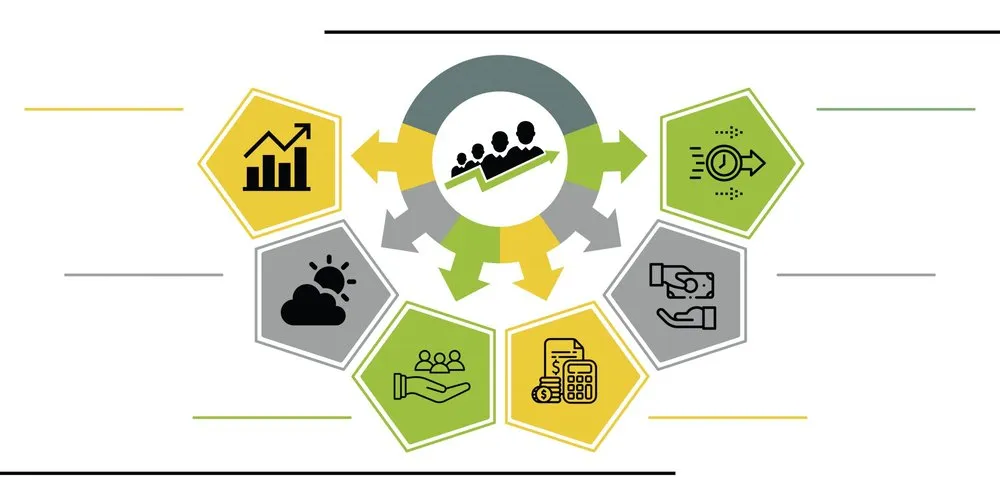 Source – http://nwmonarch.com/look-around-faces-shopping-look-happy-look-thankful-look-joyous/
Source – http://nwmonarch.com/look-around-faces-shopping-look-happy-look-thankful-look-joyous/
Companies may encounter upswings and downswings in their sales over different periods. Understanding these swings helps in planning and designing better sales compensation plans. These variations in sales occur due to a wide variety of reasons. Some of them are described below.
Nature of Market
Sales follow different seasonal cycles depending on the nature of the product or service. This is more prominent for consumer durables. Laptops, cell phones, and their accessories' sales spike in August during the back-to-school season. Similarly, refrigerators and air conditioners witness spikes during summer. Almost 80% of annual sales of air conditioners happen during summer. In the services sector, the revenues of CPA firms soar during the tax filing season. The agricultural growing season in the UK begins from April and lasts till October/November. This results in large sales of tractors in March immediately prior to the start of the season.

Climate
The natural seasons have an impact on sales volumes as well. It becomes especially difficult for sales reps to sell during tough and trying climatic conditions. The Polar Vortex in the US made a big dent in all kinds of sales. Estimates put the loss to the US economy at USD 5 billion. It particularly had a big impact on auto and retail sales. Other companies however see sales spike during such bad climatic conditions because of the nature of the product/service. During flu season drug stores do brisk business. In 2013, Walgreen, the largest drugstore chain in America reported an increase in pharmacy revenue of 10.2% in September because of an increase in the number of flu shots.
Culture
Sales jump during Thanksgiving and Christmas as people spend their money frenetically buying gifts for their loved ones. In India, gold sales surge during Diwali as it is a custom to buy gold during this season. This custom is so strong that it beats the fundamentals of economics – Gold has an inverse price-demand scenario during this season where demand rises despite an increase in prices. In 2012, Gold sales increased by 25% during Diwali week.
Budget
Governments and corporates follow a “use it or lose it” policy in budget allocations. This means that any leftover budget dollars will lapse if not used in the sanctioned period. Further, the department may face a proportional cut in their next budget. This leads to a spending spree at the end of fiscal periods to avoid budget lapsing. Spending in the last week of the year is 4.9 times the rest of the year's weekly average. The US Federal Government spent huge sums of money on buying artworks, toner cartridges, and furniture, etc. fearing their budgets might lapse after the recent government shutdown.
Compensation Periods
Companies usually have different compensation periods – monthly, quarterly, or yearly. The sales volumes of most companies show an increase towards the end of a compensation period. Sales reps push hard to close more deals towards the end of their compensation periods to beat their quotas and gain more incentives. Salespeople are no exception to the universal phenomenon of last-minute hustle to boost their numbers.
Temporary
Besides temporary sales cycles are formed because of a variety of reasons. These cycles might cause different effects in different industries. There can be a temporary dip in sales because of natural calamities. Hurricane Sandy led to a sudden drop in sales revenues of automobiles, clothing stores, and restaurants. Temporary upsurges in sales revenues can also be triggered because of government policies. In 2010, US Government incentives triggered the highest monthly spike in house sales in 47 years.
Sales analytics are useful in understanding such cyclical sales trends and help in designing sales compensation plans that are fair, just, and motivating.
If you got this far, we think you’d like our future blog content, too. Please subscribe on the right side.

 Source –
Source – 









